League Examines Establishment of a Foundation in Scarsdale
- Details
- Hits: 4955
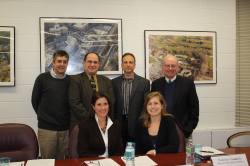 Scarsdale has been grappling with the issue of the establishment of a foundation to supplement the school budget for years. Generally, an education foundation is a tax exempt, charitable organization that can solicit tax-deductible donations from individuals and businesses. These funds can be used for capital improvements to the schools, new programs or to supplement taxpayer dollars to fill in gaps in the school budget.
Scarsdale has been grappling with the issue of the establishment of a foundation to supplement the school budget for years. Generally, an education foundation is a tax exempt, charitable organization that can solicit tax-deductible donations from individuals and businesses. These funds can be used for capital improvements to the schools, new programs or to supplement taxpayer dollars to fill in gaps in the school budget.
Since the establishment and governance of such a foundation is a complex issue, the League of Women Voters decided to study whether or not a foundation should be formed in 2004. Now, six years later, the League has completed their study and brought it to the community for review, and to their membership to form a consensus on the issue.
The goals of the study were as follows:
• To indentify and examine educational foundations that have been established in communities similar to Scarsdale that provide funding for their public schools; and
• To identify and describe existing sources of funding available to the Scarsdale schools outside the school budget, and what is funded by these sources.
The group studied educational foundations in Edgemont, Bronxville, Chappaqua, Rye Brook and Mamaroneck and found that:
- There is a strong positive relationship between the Boards of Education and the foundations
- There is no negative effect on school budget support following the establishment of a foundation
- There is no evidence of fundraising cannibalization with other community groups
- A foundation had a positive effect on community spirit
However, the committee also found that Scarsdale already has over 40 organizations that raise funds and donate monies to the school district, which may obviate the need for a separate foundation.
With their report ready for distribution, the League convened a panel of experts on November 10th to review the issues. The panel included:
- Dr. Michael McGill, Superintendent of Scarsdale Public Schools
- Mark Rosenblatt, Founding Member of the Edgemont Schools Foundation
- Howard Hirsch, Co-Chairman of the Edgemont Schools Foundation
- Nicholas Simonelli, Brewster Education Foundation President
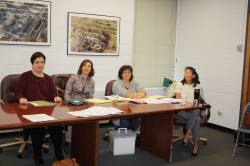 On Monday November 15, the membership of the League met for a consensus meeting on the subject, lead by subcommittee member Susie Rush. She shared the following observations that were gathered from the report and panel discussion:
On Monday November 15, the membership of the League met for a consensus meeting on the subject, lead by subcommittee member Susie Rush. She shared the following observations that were gathered from the report and panel discussion:
• Scarsdale is unique in that more than 40 organizations in the Village are already raising money for the benefit of the community and many citizens are actively engaged in volunteer activities that contribute to the schools. In some of the other towns that were studied, there were far fewer organizations supporting the schools and foundations were established to serve this purpose.
• Other towns reported that they had difficulty attracting volunteers to serve on their foundation boards and that there was not a formal process for deciding who would serve. In addition, there were no formal procedures on who could apply for grants from the foundation or for the use of foundation funds.
• Although the amount of money raised by the foundations in these towns is not a significant portion of the school budget, it does represent a meaningful portion of the school’s discretionary spending.
• It was determined that if a foundation in Scarsdale were formed and the foundation raised between $300,000- $500,000 it could operate with volunteers. However, if more than $500,000 was contributed, professional staff would be needed.
• Though the representatives from Edgemont and Brewster believed a foundation would benefit the community, in Scarsdale there were concerns that private funding could result in inequities between schools and that more proactive groups, parents or teachers could garner more funds. A larger concern was the role the Board of Education would play in funding decisions, as individuals who donated funds for a specific purpose might put undue pressure on the Board to fund the designated projects.
• In the other districts that were studied, the School Superintendant sat on the foundation board, making him or her the gatekeeper of the supplemental funds. In Scarsdale, where funding decisions are made by the school board, the role of the superintendant vis-à-vis the foundation would need to be defined.
• At the panel discussion, Scarsdale Superintendant McGill stated that in the last two years the Board has been able to fund what is needed. However given the economy and pressure from residents to hold the line on tax increases, the school could require extra funds in the future.
With these comments in mind, the membership of the League of Women Voters opened their consensus discussion to determine their position on the establishment of a foundation.
They examined a list of questions on the need for a foundation as a means to fund special initiatives or to supplement the school budget. They explored how this funding source would impact the current school budget decision-making process and how it would be governed.
Their agenda included a discussion of the impact of a foundation on other’s group’s ability to raise funds and attract volunteers and whether or not existing organizations already serve the purpose of a foundation in Scarsdale.
From my review of the report and the panel discussion, it is clear that the potential of collecting private funding for the public schools raises many issues at a time when the Scarsdale School District does not appear to be in distress. In the past, where a need was demonstrated, and a committed group of advocates emerged, supplementary funding was permitted by the Scarsdale Board of Education. This was demonstrated when the group “Fields for Kids” raised funds to build a turf field at Scarsdale High School. The League will have to decide whether outside initiatives require the establishment of a foundation or if one-time projects can be funded on an ad hoc basis.
As an outcome of their meeting, the League will formulate their consensus statement and issue it to the community for review. We will publish it here when it is available.
Thanks to the League subcommittee members: Kim Meyers, Nancy Michaels, Debbie Miller, Susie Rush, Amy Scharf and Janice Starr.
What's Up At Village Hall
- Details
- Hits: 4168
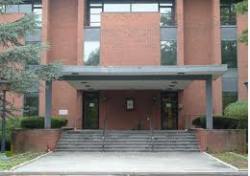 We chatted with Scarsdale Mayor Carolyn Stevens about the viability of an indoor pool and community center as well as other items on the village agenda in the coming months:
We chatted with Scarsdale Mayor Carolyn Stevens about the viability of an indoor pool and community center as well as other items on the village agenda in the coming months:
We asked what she thought about the possibility of undertaking the $25 million indoor pool and community center project, given the strained Village budget.
Here is her response:
- The project would not begin for two to three years and in that time the economy should improve.
- The financing for the project would come out of an enterprise fund, not the Village operating budget.
- All the data presented by the SCC shows that the facility would be self-sustaining and seems quite sound.
- Last, she explained that even if the current Board gives the Scarsdale Community Center (SCC) the go ahead, this Board’s recommendation would not bind future boards. Therefore, if the SCC is successful at raising $8 million in contributions, the Board of Trustees at that time would need to make the decision to issue the $16 million bond to fund the project. Stevens plans to schedule one or two meetings to mull the plan over and get more reaction from the community.
The Mayor also gave this update on other issues under discussion at Village Hall:
The Federal Monitor has approved the model code provision in the County’s Affordable Housing Settlement plan. However there has been no ruling on the entire plan. Monitor James Johnson said, “The model ordinance proposed by the County, in its current form, offers a template to municipalities that both meets the requirements of the Stipulation and is likely to be used by municipalities in Westchester County as a model for actual local ordinances.” Now that it has been approved, Scarsdale has the option of adopting this model code and the Mayor has asked the Village Attorney and Village Planner to study the model code provisions and report to the Trustees. Learn more here:
The Village is coming close to adopting new parking requirements that should clear the way for restaurants to open downtown. Under the new law, parking requirements for restaurants would be the same as they are for retail stores. In addition, the Village would have the power to waive the requirement for up to 1/3 of the parking spaces to accommodate a restaurant tenant.
Trustees are also still considering the adoption of an Open Space Fund that would allow the village to purchase available parcels and protect them from development. The funds would come from an addition to the mortgage tax new homebuyers pay at closing and would not be assessed for refinances. Alternatively, according to Stevens, a small amount could be added to resident’s real estate taxes.
Another key issue is a possible Village wide tax revaluation. Stevens plans to have a resolution on revaluation before the Board in December.
 Discussion a potential traffic rotary at the Heathcote Five Corners, Stevens reported that the Village put out an RFP to traffic engineers for a feasibility study of the roundabout. Nine responses were received; the Village has looked at the top four and will soon make a decision on the vendor selection. Since the site involves county roads, the Village hopes to get funds from the state or federal government for the project.
Discussion a potential traffic rotary at the Heathcote Five Corners, Stevens reported that the Village put out an RFP to traffic engineers for a feasibility study of the roundabout. Nine responses were received; the Village has looked at the top four and will soon make a decision on the vendor selection. Since the site involves county roads, the Village hopes to get funds from the state or federal government for the project.
Last, Trustees are currently considering changes to the law to preserve historic homes and sites. Read more on developments here.
Stevens’ two-year term as Mayor ends in April 2011.
A Gap Year in China
- Details
- Hits: 5156
 Two recent high school grads from Scarsdale are taking a gap year between high school and college and living and working in China. Rick Altieri and Greg Kristof are taking Mandarin classes in Beijing at Tsinghua University, volunteering at a local school, teaching English, and working at a newspaper. They are also keeping a lively blog of their experiences that you can find here.
Two recent high school grads from Scarsdale are taking a gap year between high school and college and living and working in China. Rick Altieri and Greg Kristof are taking Mandarin classes in Beijing at Tsinghua University, volunteering at a local school, teaching English, and working at a newspaper. They are also keeping a lively blog of their experiences that you can find here.
Here are excerpts from their blog:
The Trip - Posted on September 3, 2010 by Rick Altieri: I suppose any blogger owes readers an explanation.
I’m writing because I have a worthwhile story. Though I’m eighteen, I will not attend college this fall. I’ve deferred my enrollment at Amherst College for a gap year in China. In high school I studied Chinese, and I spent six weeks in Beijing on a homestay program during the summer of 2009. The memories lie on my shelf: snapshots with the local shopkeepers, a thermos dressed in calligraphy, a snapshot with the shopkeeper who conned me into buying that thermos, a lighter that sings the national anthem, and yellowed boosterism from Mao’s rule. Other memories, like Fidel’s favorite cigar, were confiscated at the gate.
This time, along with my friend Greg Kristof, I’ll study Mandarin at Tsinghua University, work for a newspaper, and volunteer at a local school. To defray some of the cost we’ll also teach English. On this blog, I’ll record some of my experiences, from poorly translated signs (“public notice board” once became “pubic notice board”) to observations on an ancient city leaping into a fast-wired world.
I leave tomorrow on a direct thirteen and a half hour flight from Newark. Last time, in the height of the swine flu epidemic, government officials in surgical masks boarded the plane and checked our temperature. Chinese law stipulated that anyone with a high temperature—and all passengers within two rows—would be quarantined for two weeks.
Sure enough, when an official checked the woman in front of me, the machine flashed red and began beeping. Passengers craned their necks while the masks descended upon the new patient. She pleaded over the rumble of the plane. ”I was wearing a hat the whole flight!” she said. “Look, that’s why I’m sweating! Please, try it again!”
After talking it over, the officials waited five anxious minutes before testing a second time. One by one, they waved their devices over the passenger’s forehead. One by one—with relieved sighs between—the machines passed in silence. Scattered applause and whistles broke out as the pilot turned off the fasten-seatbelt sign. We filed off the plane, preparing for the world ahead.
We’ll see what this year’s day one brings.
Duck Blood Anyone? Posted on September 30, 2010 by Greg Kristof
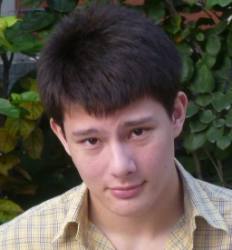 It is served as a semi-solid glassy blubber that jiggles this way and that, like jello. I spooned it around in my bowl, thrusting it against lettuce and cow stomach. Then I closed my eyes, prodded my soul for courage, and lifted the stew to my lips. Grrackk! I wish I could say that I savored this crunchy rampage of jumbled body parts, this casserole of Chinese tradition that fractured but would not go down. Wish I could.
It is served as a semi-solid glassy blubber that jiggles this way and that, like jello. I spooned it around in my bowl, thrusting it against lettuce and cow stomach. Then I closed my eyes, prodded my soul for courage, and lifted the stew to my lips. Grrackk! I wish I could say that I savored this crunchy rampage of jumbled body parts, this casserole of Chinese tradition that fractured but would not go down. Wish I could.
A Chinese investment banker, Mr. Shi, and his son had treated us to lunch, and we were all hunched over a pot of boiling water. It’s called Beijing Hot Pot. Waiters heap the table with raw food, and the customers dip that food into the bubbles, thereby cooking it.
The process allows us to be our own chef, which sounds marvelous—if you’re a harebrained teenager. I had spent the last 20 minutes stockpiling my plate with slithery entrails from multiple beasts, submerging them in the cauldron until I could practically hear their souls bleating for mercy. To further convey enthusiasm for the meal, I tore apart a loaf of meat, released a mini battle whoooop!, lowered teeth to platter, and razed everything within scent-range like Godzilla after a bad breakup. Not everyone did that.
“Wow guys, it’s so…so delectable.” I said after coming up for air.
“I knew you’d like it,” Mr. Shi said.
But I wasn’t done. “Hey Ricky, aren’t you going to try some?” A silence, as Ricky pondered how he could best preserve his manliness.
“Well, of course,” he replied. “I’m not one to duck a challenge.” (Badaboom!)
He dipped into his duck blood while warding off applause for his bulls-eye wit. Nice, Ricky. But luckily I had been saving my own buckshot for deployment at the right time. “I just love the fowl taste.”
“You say it tastes foul?” Mr. Shi’s face hardened.
“No! I mean, err…” Rats. A silence, as I pondered how I could best preserve my dignity. I didn’t have to ponder long. “Oh, he’s just dabbling in the lowest form of wit,” Ricky said, coming to my rescue. “And drowning.”
Times like this have made me long for real Chinese food. You know, the kind they have in America.
But times like this have also shown me China’s rich, soft underbelly: the gracious friend of a friend who treats you to an unforgettable meal, displays the true meaning of hospitality, and who then can’t go home with a smile until you’ve tried some of his duck blood.
My suggestion is this: next time you visit a foreign country in the hope of discovering a New World, eat local food and learn the local language—no matter how rubbery the meat, or how grueling the grammar. Your life will leap open. Next time you’re strolling by the Western Wall and feel the stomach growl, don’t go for the ubiquitous pretzel stand. Instead, waffle down some Falafel. Next time you’re being chased by bandits in Colombia, turn around and, en espanol, offer them your wallet in return for some home-cooked potato sopa. If you lose an arm along the way, well, at least you’ve still got another. And it’ll make an awesome story for the grandkids.
Ahh, but my mind wanders. Duck blood will do that to you. For now, at least, I’m back in the dough-colored room. Ricky and I are smiling professionally at our host.
“I’m so glad you like it,” Mr. Shi said as he reached for our plates. “Here, have some more.”
Read more here
Citizens Nominating Committee Election Results
- Details
- Hits: 4510
 The winners in the election for the Scarsdale Citizen’s Nominating Committee held on Tuesday November 9 were announced. Nominators will serve three year terms and will select candidates for Village Trustee and Mayor.
The winners in the election for the Scarsdale Citizen’s Nominating Committee held on Tuesday November 9 were announced. Nominators will serve three year terms and will select candidates for Village Trustee and Mayor.
Ten residents, two from each of Scarsdale’s five election units were elected:
- From Edgewood – 65 votes were counted and John Belbusti and Timothy C. Dunne were elected.
- From Fox Meadow - 133 votes were counted and Richard Henry Behr and James Dugan were elected.
- From Greenacres – 89 votes were counted and Marylou Cooper Green and Jon D. Leslie were elected.
- From Heathcote – 129 votes were counted and Billy Jacobs and Lyle J. Katz were elected.
- From Quaker Ridge - 100 votes were counted and Patricia Gordon and Gwendolyn Horn were elected.
In a note to the candidates, Jim Pullman, the Chair of this year’s Procedure Committee, wrote “the election was close, and no one should be ashamed of the number of votes they received. You are all appreciated for making the effort to run for this office, and will be remembered as good citizens. Many candidates have run again the next year or the year after, and have used their prior experience to help them to win the election. “
“Michelle Lichtenberg, next year's Procedure Committee Chair, will be happy to work with you as candidates next year.”
How to Fix Albany? Split your Ticket on Tuesday and Elect Andrew Cuomo Governor and Scarsdale’s Harry Wilson Comptroller
- Details
- Hits: 4799
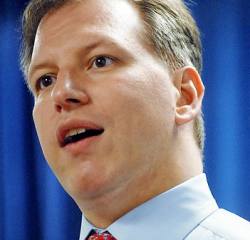 Not much needs to be said about the wisdom of voting for Andrew Cuomo for Governor. Carl Paladino probably never had much of a shot in the general election - but made things a lot worse for himself by continuously creating a negative personal presence in the news ever since he won the Republican primary in September. But the act of electing Cuomo for Governor alone won't be enough to really throw down the gauntlet for reforming New York State government.
Not much needs to be said about the wisdom of voting for Andrew Cuomo for Governor. Carl Paladino probably never had much of a shot in the general election - but made things a lot worse for himself by continuously creating a negative personal presence in the news ever since he won the Republican primary in September. But the act of electing Cuomo for Governor alone won't be enough to really throw down the gauntlet for reforming New York State government.
In fact, on Tuesday the most important vote New Yorkers can cast to begin real post-partisan efforts to fix Albany -- would be to elect Harry Wilson State Comptroller.
I've previously written about Wilson in the Huffington Post as well as in Scarsdale10583 as has Henry Stern and Dan Collins . Nearly all editorial boards of New York papers across the state have given full-throated endorsements to Wilson's candidacy.
Why? He's smart, he's a real outsider to Albany, and he has vision.
On Sunday, the Albany Times-Union endorsed Wilson highlighting his financial expertise and restructuring chops -- but perhaps most compelling, said:
“While Mr. DiNapoli, to be sure, has been as outspoken on issues like the state's financial problems as any comptroller in memory, Mr. Wilson is a real outsider in a town where just about everyone, it seems, would like to pretend to be one right now.
“He isn't beholden to the Legislature that Mr. DiNapoli came from and was appointed by.
He owes nothing to the state unions that have supported Mr. DiNapoli's campaign, and whose interests, it has seemed, have eclipsed those of ordinary taxpayers in state government.
As a Republican, he offers a balance to the Democrats who have ruled state government exclusively for the past two years and are likely to continue to dominate it after Tuesday's election. This post, remember, involves more than managing the state's money; it also serves as an independent watchdog that can audit agencies and public authorities. New York could use a comptroller who isn't, ultimately, another member of the ruling clan.....
“We are encouraged, too, by Mr. Wilson's plans to further clean up the comptroller's office. While Mr. DiNapoli made a strong start in ending the pay-to-play culture there by banning work by financial firms for two years after they make political contributions to a comptroller or candidate for the office, Mr. Wilson proposes similar restrictions on outside law firms that can reap millions representing the state. He would also ban the acceptance of contributions from state employee unions.”
In fact last week the New York Post reported that outside law firms bidding for pension fund work have shown up on DiNapoli's campaign contribution list. So Wilson's outsider status and independence from the political class of either party in Albany can turn the Comptroller's office into something of a transformative governing partner with Andrew Cuomo in dealing with the State Legislature.
Having a Comptroller Wilson alongside Governor Cuomo will likely incentivize the powers-that-be to move more forthrightly in dealing with the most intractable problems and issues facing New York State -- and this governing coalition could serve as a model for genuine, accomplishment-driven post-partisan state government for the rest of the country to emulate.
David A. Singer is a former political consultant/campaign professional and political junkie currently toiling as a lawyer in Westchester and managing real estate and media investments.













